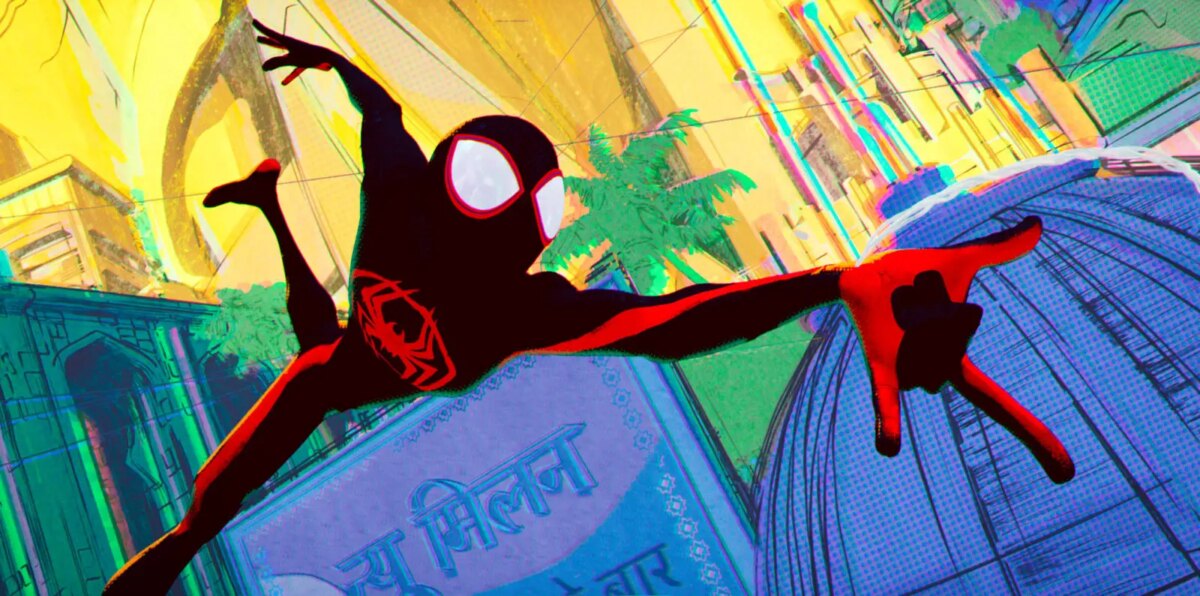
NOW IN THEATERS! Spider-Man: Across the Spider-Verse, directed by Joaquim Dos Santos, Kemp Powers, and Justin K. Thompson, would be a great film if it weren’t so damn long. That said, it’s pretty good. Screenwriters Phil Lord, Christopher Miller, and Dave Callaham start the adventure a few years after Spider-Man: Into the Spider-Verse, Miles Morales (Shameik Moore) is now a senior in high school, and his future is daunting. Mainly because he’s never around due to all that crime fighting he does as Spider-Man. On a personal level, his parents, Jefferson (Brian Tyree Henry) and Rio (Luna Lauren Velez), are having a hard time letting their little genius go.
Meanwhile, the Spot (Jason Schwartzman) is causing havoc committing petty crimes through his dimensional portal powers given to him during the collider explosion in the first movie. The Spot is stopped thanks to the help of Spider-Gwen (Hailee Steinfeld), who can visit Miles’ dimension thanks to a technologically-advanced “watch” given to her by Spider-Man 2099 (Oscar Isaac).
Gwen Stacy (Hailee Steinfeld) and Miles Morales (Shameik Moore) in Columbia Pictures and Sony Pictures Animations’ SPIDER-MAN™: ACROSS THE SPIDER-VERSE.
“…an elite team of Spider-persons scours the Multiverse to plug up holes formed by dimensional jumping.”
Because of the events in Into the Spider-Verse, an elite team of Spider-persons scours the Multiverse to plug up holes formed by dimensional jumping. The team is led by Spider-Man 2099, Jessica Drew (Issa Rae), Gwen, Spider-Man India (Karan Soni), and Spider-Punk (Daniel Kaluuya). Miles wants to be part of the team to prove himself to his parents, but there’s no more room on the team. Still, Miles follows Gwen to the sanctuary of Spidey 2099 and all the Spider-people, literally every single Spidey. All the Spideys now shun Miles because he’s on the verge of collapsing the entire Multiverse and must be stopped.
There’s a lot more to the story of Spider-Man: Across the Spider-Verse, and I don’t have the word count or time to go through it all. Suffice it to say, the plot is dense and features all the 30-second backstories from one Spidey after the other. I’m OK with jam-packed, but there are storylines surrounding Miles and his parents that desperately needed to be tightened up, specifically the entire cake incident.
As a sequel, the art design picks up right from the first. The difference is instead of each Spider-character presented in their unique art style, the dimensions we jump to are in their unique art style. So, for example, Miles’ world resembles today’s high-quality comic book printing, while Gwen’s world is like an oil painting with dripping lines for effect. In other words, this is a visually dazzling delight.














